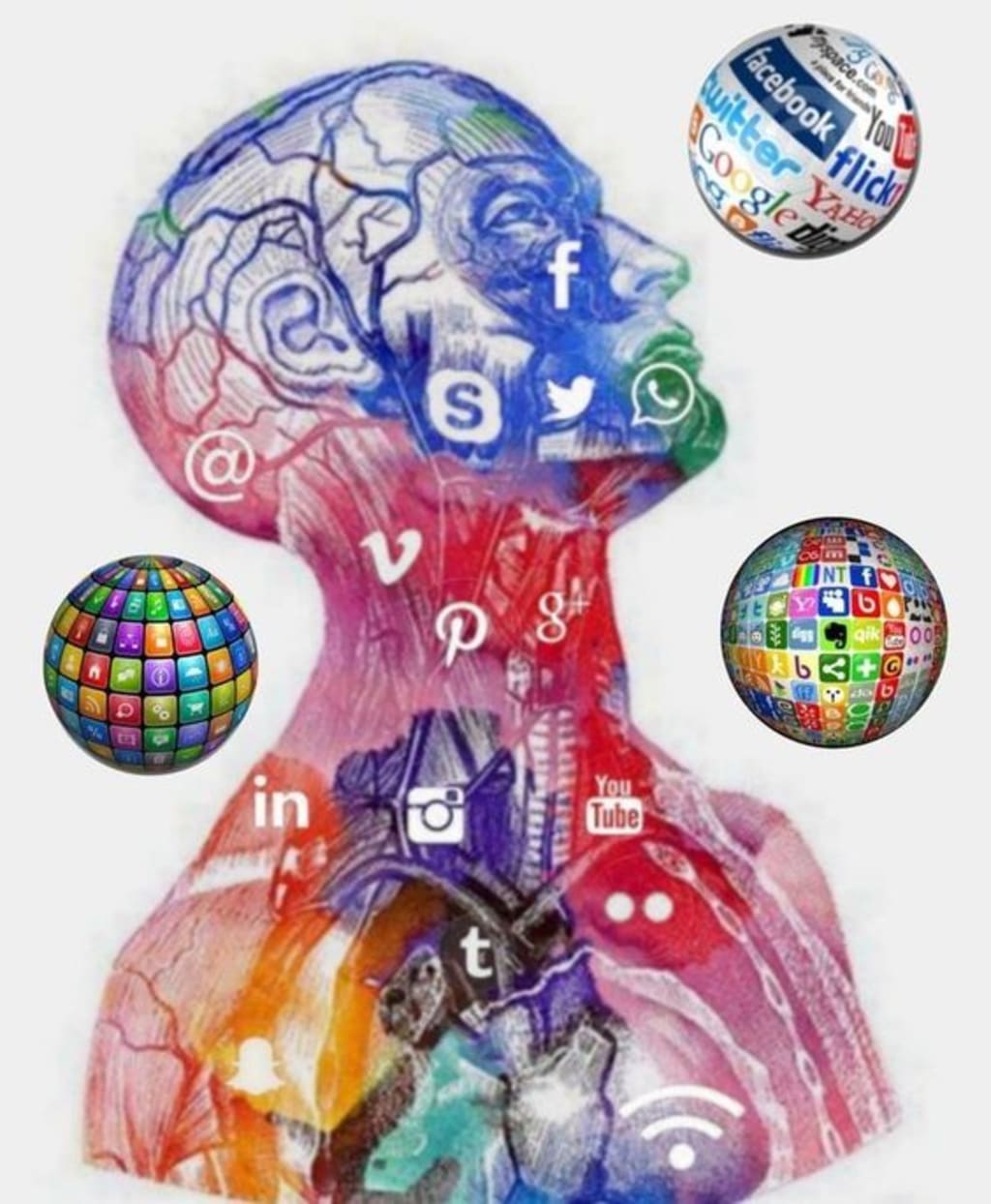The relationship between social media use and self-esteem and body image
Social media and self-esteem

Introduction
Social media has revolutionized the way people communicate and interact with each other. Today, social media platforms are an integral part of people's lives. Social media has changed the way people interact with each other, and it has become an important tool for self-expression and self-presentation. With the growing use of social media, concerns have been raised about the impact of social media on people's self-esteem and body image. The purpose of this article is to examine the relationship between social media use and self-esteem and body image.
Self-Esteem and Social Media
Self-esteem is the way a person views themselves and their worth. Social media has been found to have both positive and negative effects on self-esteem. Some studies have shown that social media use can enhance self-esteem by allowing people to express themselves and receive positive feedback from others. This positive feedback can boost a person's self-esteem, and they may feel more confident and happy.
On the other hand, social media can also have a negative impact on self-esteem. Social media platforms are often used to present an idealized version of oneself, which can lead to feelings of inadequacy and low self-esteem. People may compare themselves to others and feel that they do not measure up to the idealized images presented on social media. This can lead to feelings of inferiority and low self-worth.
Moreover, social media can also create feelings of social isolation and loneliness, which can also impact self-esteem. People may feel that they are not as popular or socially connected as others, which can lead to feelings of inadequacy and low self-esteem.
Body Image and Social Media
Body image is the way a person perceives their own body. Social media has been found to have a significant impact on body image, particularly among young people. Social media platforms often present an idealized and unrealistic image of beauty, which can lead to body dissatisfaction and negative body image.
Research has shown that social media use can lead to an increase in body dissatisfaction and negative body image, particularly among women. Women are more likely to compare themselves to others on social media and feel that they do not measure up to the idealized images presented on social media. This can lead to feelings of insecurity and a negative body image.
Moreover, social media can also create pressure to conform to the idealized beauty standards presented on social media. This pressure to conform can lead to unhealthy behaviors such as excessive dieting and exercise, which can lead to eating disorders and other health problems.
Further Effects of Social Media on Self-Esteem and Body Image
While the relationship between social media use and self-esteem and body image is complex, there are several other factors to consider that can further impact these outcomes.
1. Social Comparison
One of the most significant factors is social comparison. Social media platforms provide a constant stream of content that can fuel social comparison. People tend to compare themselves to others who appear to be more successful, attractive, or happy. This can lead to feelings of inadequacy and low self-esteem. In terms of body image, social comparison can fuel unrealistic beauty standards and promote the idea that certain body types are more desirable than others.
2. Cyberbullying
Another significant factor is cyberbullying. Social media platforms can be a breeding ground for cyberbullying, where users can anonymously or publicly attack others. Cyberbullying can lead to a decrease in self-esteem, as victims may feel targeted and socially isolated. Furthermore, it can fuel negative body image, as cyberbullies may target individuals based on their physical appearance.
3. Filtered and Manipulated Images
Social media platforms often use filtered and manipulated images to promote a certain image of beauty. These images can be unrealistic and fuel negative body image. Moreover, filters and image manipulation can create an illusion of perfection, which can lead to feelings of inadequacy and low self-esteem.
4. Influencers and Celebrity Culture
Influencers and celebrity culture can also have an impact on self-esteem and body image. Social media influencers often present an idealized image of themselves, which can lead to unrealistic beauty standards and promote negative body image. Additionally, celebrity culture can promote the idea that success and happiness are based on external appearances, leading to feelings of inadequacy and low self-esteem.
Strategies to Mitigate the Negative Effects of Social Media
Given the complex relationship between social media use and self-esteem and body image, it is important to develop strategies to mitigate the negative effects of social media. Some strategies to consider include:
• Limiting Social Media Use
Limiting social media use can help individuals reduce exposure to negative content and minimize the impact of social comparison. Individuals can set boundaries around their social media use by setting time limits, avoiding social media during certain times of the day, or taking breaks from social media altogether.
• Promoting Positive Body Image
Promoting positive body image can help individuals focus on their strengths and unique qualities, rather than comparing themselves to others. This can be done by promoting a more inclusive image of beauty on social media, celebrating diverse body types, and rejecting unrealistic beauty standards.
• Developing Resilience
Developing resilience can help individuals cope with negative content and maintain a positive self-image. Resilience can be developed by practicing self-compassion, building a support system, and seeking professional help if needed.
• Promoting Cyberbullying Awareness
Promoting cyberbullying awareness can help reduce the negative impact of cyberbullying. This can be done by educating individuals on how to recognize cyberbullying, reporting cyberbullying, and creating a supportive environment that promotes kindness and respect.
Conclusion
Social media has become an integral part of people's lives, and its impact on self-esteem and body image cannot be ignored. While social media can have positive effects on self-esteem, it can also have negative effects, particularly when it comes to body image. Social media platforms often present an idealized and unrealistic image of beauty, which can lead to body dissatisfaction and negative body image. Therefore, it is important to be aware of the potential impact of social media on self-esteem and body image and take steps to mitigate these negative effects. This can be done by promoting a more realistic and inclusive image of beauty on social media and encouraging people to focus on their own strengths and unique qualities rather than comparing themselves to others.
About the Creator
RS Creation
Search makes a person perfect, and in today's modern technology world, new information is learned through search.
He is created as a man. I am happy to share with you the many information that I have read and learned through my search.






Comments
There are no comments for this story
Be the first to respond and start the conversation.